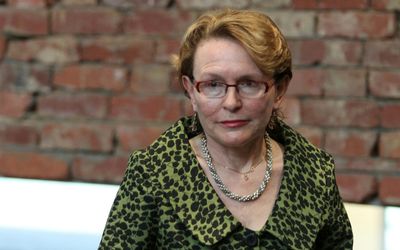THE Democratic Alliance (DA) retained control of the Western Cape and increased its support base largely due to the Congress of the People’s (COPE’s) collapse.
The DA believes the shift of allegiance by COPE supporters has given it a greater foothold in black communities. But these remain solidly behind the African National Congress (ANC). In the 2009 elections, COPE took 9.1% of the provincial vote, but is unlikely to get more than 1% in this week’s poll.
The DA was confident on Thursday that it would get 55%-60% of the provincial vote, compared with 51% in 2009. The Council for Scientific and Industrial Research (CSIR) was more specific, predicting 57.2% for the DA and 34.2% for the ANC, which got 32.9% in 2009.
Further gains the ANC might have made at COPE’s expense could have been negated by losses to the Economic Freedom Fighters, which looked as if it would get about 1%-2% of the provincial vote.
DA provincial leader Ivan Meyer said "the ANC no longer has a monopoly over black voters".
The expenditure of the budget in black areas and disillusion with the ANC had also paid off for the DA among black voters.
Gaining support in black areas is important if the DA is to establish itself more strongly as a party representing all racial groups.
It is equally important for the ANC to make headway in the largely DA-supporting coloured areas if it is to have any hope of winning the Western Cape, where coloured people predominate.
Human settlements deputy minister and the ANC’s election co-ordinator in the province, Zou Kota-Fredericks, said the party was excited at the support it gained in the coloured areas of Manenberg, Hanover Park, Heideveld and Bishop Lavis. She attributed this to the ANC having taken up issues of local concern such as crime and housing.
"These elections show us very clearly that the DA is vulnerable in the City of Cape Town. We think we are going to turn the corner going forward." Ms Kota-Fredericks said the ANC was pleased it had retained the votes it won in black townships in 2009, but was disappointed it did not reduce the DA’s majority to get more than 40% of the vote.
Mr Meyer scoffed at the ANC’s claim of winning significant numbers of coloured votes, saying the figures indicated Mitchell’s Plain remained "wall to wall" under DA control.
The need for the DA and the ANC to expand their footprint in the electorate was clear from the 2009 election results — the DA won only 0.8% of the black vote against the ANC’s 82.7%, while the ANC took only 1% of the white vote against the DA’s 88.5%. The coloured vote was divided 66.7% in favour of the DA and 11% of the ANC.
DA CEO and campaign manager Jonathan Moakes said the consolidation of DA support in the province was a sign of voter confidence in its ability to govern well.
Turnout was strong and indicated that DA supporters were "very determined" to make sure the party remained in power in the province.
Mr Moakes said support in rural towns and the southern Cape had grown since 2009. This augured well for 2016, he said, when the DA was likely to achieve majorities in towns where, until now, it had had to form coalitions.
In the 2011 local government elections, the DA won Mossel Bay, George and Knysna with majorities but ran neck and neck with the ANC in Bitou (DA 49%, ANC 46%), Oudtshoorn (ANC 42.5%, DA 40.8%), Swellendam (ANC 42.54%, DA 41.5%), Prince Albert (DA 48.3%, ANC 42.6%), Laingsburg (DA 46.4% ANC 42.5%), Hessequa (DA 47%, ANC 40.5%) and Kannaland (Independent Civic Organisation of SA 41%, ANC 27.8% and DA 24.5%). Coalition governments, some very unstable, had to be formed.

Former Democratic Alliance leader Helen Zille. Picture: SOWETAN
THE Democratic Alliance (DA) retained control of the Western Cape and increased its support base largely due to the Congress of the People’s (COPE’s) collapse.
The DA believes the shift of allegiance by COPE supporters has given it a greater foothold in black communities. But these remain solidly behind the African National Congress (ANC). In the 2009 elections, COPE took 9.1% of the provincial vote, but is unlikely to get more than 1% in this week’s poll.
The DA was confident on Thursday that it would get 55%-60% of the provincial vote, compared with 51% in 2009. The Council for Scientific and Industrial Research (CSIR) was more specific, predicting 57.2% for the DA and 34.2% for the ANC, which got 32.9% in 2009.
Further gains the ANC might have made at COPE’s expense could have been negated by losses to the Economic Freedom Fighters, which looked as if it would get about 1%-2% of the provincial vote.
DA provincial leader Ivan Meyer said "the ANC no longer has a monopoly over black voters".
The expenditure of the budget in black areas and disillusion with the ANC had also paid off for the DA among black voters.
Gaining support in black areas is important if the DA is to establish itself more strongly as a party representing all racial groups.
It is equally important for the ANC to make headway in the largely DA-supporting coloured areas if it is to have any hope of winning the Western Cape, where coloured people predominate.
Human settlements deputy minister and the ANC’s election co-ordinator in the province, Zou Kota-Fredericks, said the party was excited at the support it gained in the coloured areas of Manenberg, Hanover Park, Heideveld and Bishop Lavis. She attributed this to the ANC having taken up issues of local concern such as crime and housing.
"These elections show us very clearly that the DA is vulnerable in the City of Cape Town. We think we are going to turn the corner going forward." Ms Kota-Fredericks said the ANC was pleased it had retained the votes it won in black townships in 2009, but was disappointed it did not reduce the DA’s majority to get more than 40% of the vote.
Mr Meyer scoffed at the ANC’s claim of winning significant numbers of coloured votes, saying the figures indicated Mitchell’s Plain remained "wall to wall" under DA control.
The need for the DA and the ANC to expand their footprint in the electorate was clear from the 2009 election results — the DA won only 0.8% of the black vote against the ANC’s 82.7%, while the ANC took only 1% of the white vote against the DA’s 88.5%. The coloured vote was divided 66.7% in favour of the DA and 11% of the ANC.
DA CEO and campaign manager Jonathan Moakes said the consolidation of DA support in the province was a sign of voter confidence in its ability to govern well.
Turnout was strong and indicated that DA supporters were "very determined" to make sure the party remained in power in the province.
Mr Moakes said support in rural towns and the southern Cape had grown since 2009. This augured well for 2016, he said, when the DA was likely to achieve majorities in towns where, until now, it had had to form coalitions.
In the 2011 local government elections, the DA won Mossel Bay, George and Knysna with majorities but ran neck and neck with the ANC in Bitou (DA 49%, ANC 46%), Oudtshoorn (ANC 42.5%, DA 40.8%), Swellendam (ANC 42.54%, DA 41.5%), Prince Albert (DA 48.3%, ANC 42.6%), Laingsburg (DA 46.4% ANC 42.5%), Hessequa (DA 47%, ANC 40.5%) and Kannaland (Independent Civic Organisation of SA 41%, ANC 27.8% and DA 24.5%). Coalition governments, some very unstable, had to be formed.














 News, views and analysis of South Africa's national and provincial elections
News, views and analysis of South Africa's national and provincial elections







Change: 0.83%
Change: 0.93%
Change: 0.95%
Change: 0.73%
Change: 1.91%
Data supplied by Profile Data
Change: 0.58%
Change: 0.43%
Change: 0.83%
Change: 0.00%
Change: 0.56%
Data supplied by Profile Data
Change: 0.01%
Change: -0.06%
Change: 0.02%
Change: -0.07%
Change: -0.24%
Data supplied by Profile Data
Change: -0.21%
Change: -0.10%
Change: -0.19%
Change: -0.34%
Change: 0.17%
Data supplied by Profile Data